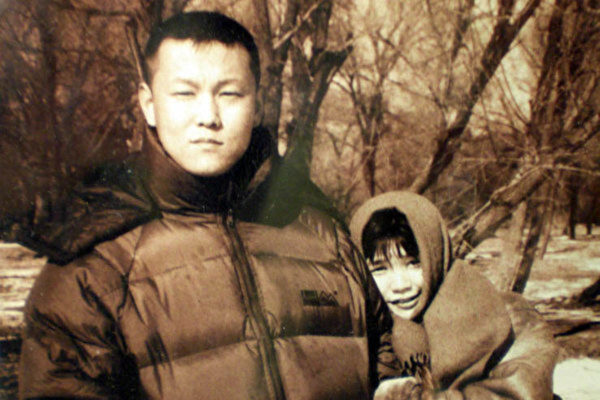
EU Calls on China to Release Artist Persecuted for Her Faith

The European Union (EU) expressed its concerns about the human rights situation in China and called for “the immediate and unconditional release” of 39 Chinese citizens, including Falun Gong adherent Xu Na, who are being persecuted by the communist regime.
During the 54th session of the United Nations Human Rights Council that took place from Sept. 11 to Oct. 13, the EU delegation presented a statement urging the Chinese regime to “abide by its obligations under national law, including its own Constitution, and international law, to respect, protect and fulfill human rights for all.”
According to the statement, “Uyghurs, Tibetans and persons belonging to ethnic, religious and linguistic minorities continue to be subjected to human rights violations.”
Human rights defenders, journalists, and intellectuals continue to be exposed to harassment, intimidation, and surveillance and subjected to torture, unlawful detention, sentencing, and enforced disappearance, including via Residential Surveillance in a Designated Location (RSDL), the EU delegation said.
The statement also stressed its concern about the human rights situation in Hong Kong and the repressive use of the National Security Law and the Sedition Law by Beijing to undermine fundamental freedoms.
“The EU urges the Chinese central government and the Hong Kong authorities to restore full respect for the rule of law, fundamental freedoms, and democratic principles,” reads the statement.
Xu Na
Although the EU statement did not explicitly mention Falun Gong, it included Xu Na—an artist who is currently detained by authorities due to her faith—among those listed as persecuted individuals.
Falun Gong, also known as Falun Dafa, is a spiritual discipline involving meditative exercises and moral teachings based on three core principles: truthfulness, compassion, and tolerance. The practice gained popularity in China during the 1990s, with 70 million to 100 million adherents by the end of the decade, according to official estimates at the time.
The atheist communist regime initiated a sweeping campaign on July 20, 1999, aimed at eradicating Falun Gong, as it perceived the growing number of adherents as a threat to its authoritarian control. Since then, millions have been detained in prisons, labor camps, and other facilities, with hundreds of thousands tortured while incarcerated, according to the Falun Dafa Information Center.
Soon after the Chinese Communist Party (CCP) started the persecution campaign in 1999, Ms. Xu and her husband, Yu Zhou, a folk musician and also a Falun Gong practitioner, were arrested that year.
In 2001, Ms. Xu, who was 32 at the time, was again arrested and received a five-year prison sentence.
In January 2008, Beijing authorities detained the couple under the guise of an “Olympic check.” Tragically, Mr. Yu, who was 42 years old at the time, died due to torture within two weeks of his arrest. Ms. Xu was subsequently sentenced to three years in prison.

On July 19, 2020, the Beijing Municipal Public Security Bureau detained 11 Falun Gong adherents, including Ms. Xu. They were detained for providing photos and information to the Chinese-language edition of The Epoch Times during the early COVID-19 outbreak in China.
After more than a year in a local detention center, Ms. Xu received an eight-year prison sentence on Jan. 14, 2022, three weeks before the start of the 2022 Winter Olympics. She was convicted for being allegedly involved with a “heretical” organization to undermine the implementation of the law, according to Article 300 of China’s Criminal Law. Her sentence was the lengthiest among the 11, with the others receiving sentences ranging from two to five years, according to her lawyer.
In an October 2023 report by Minghui.org, a U.S.-based multilanguage website that features firsthand information about the persecution of Falun Gong, it was revealed that Ms. Xu had been moved from Beijing Tianhe Prison to Beijing Women’s Prison in September. The latter facility has consistently denied her family’s requests to visit her.
Ms. Xu hails from an artistic family background. Her father was a member of the Chinese Artists Association, and her mother taught at the Jilin Province Art Academy. Ms. Xu garnered recognition by receiving an award at the 1998 Chinese Young Artists Oil Painting Exhibit.
Article 300 of Criminal Law
The 2022 Congressional-Executive Commission on China annual report stated that the CCP continues to use Article 300 to persecute members of spiritual groups—including Falun Gong, the Church of the Almighty God, the Jehovah’s Witnesses, among others—deemed illegal or considered to be a “cults.” The law forbids “organizing and using a cult to undermine implementation of the law,” according to the report.
Wu Shaoping, a human rights lawyer who now lives in New York, said that Article 300 is itself in violation of the Chinese Constitution, and “it is a tool used to fabricate charges against Falun Gong.”
In a 2008 open letter to the Chinese Supreme Procuratorate, Chinese human rights lawyer Wang Yonghang raised the issue that Article 300 cannot be legitimately applied to Falun Gong because it “does not meet minimal international legal standards of clarity and specificity.”
Moreover, “In practice, the government organs that have tried to charge Falun Gong practitioners at the behest of the 610 Office have never been able to legitimately demonstrate that the practitioners had committed an actual crime. It has never been established in court which law’s implementation is disrupted by Falun Gong adherents peacefully practicing their faith, doing their exercises, or disseminating information on human rights abuses,” according to a written Statement by Yiyang Xia, senior director of Policy and Research at the Human Rights Law Foundation and director of the Investigation Division for the World Organization to Investigate the Persecution of Falun Gong.
The 610 Office, named after the date of its inception on June 10, 1999, is an extralegal task force created to carry out the persecution of Falun Gong.
Mr. Wang, who had represented Falun Gong practitioners, experienced persecution by the Chinese regime, similar to many Chinese lawyers who defended the practice. In 2009, he was sentenced to seven years in prison by a local court in Dalian city, Liaoning Province, for allegedly violating Article 300.
Li Chen contributed to this report.
(The Epoch Times)














Comments